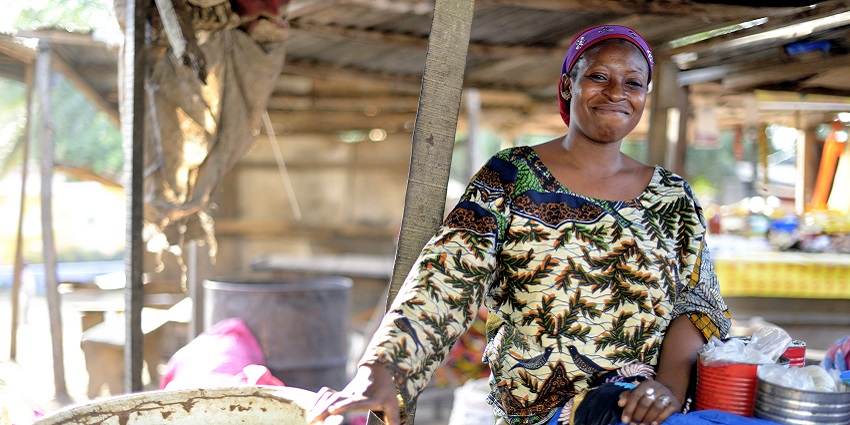3,2M€
Wallet
35 791
Number of beneficiaries
100 %
Women beneficiaries
100 %
Rural beneficiaries
South Africa
Financial services
Funding granted
Loan of €422,000*
(local currency equivalent)
Foundation Partner
since 2019
*Outstanding at grant value
Context :
South Africa is an emerging country with an increasingly diversified economy, but it remains unable to achieve a dramatic reduction in extreme poverty. This explains why the pursuit of strong economic growth takes priority over other progress. The agricultural sector is also struggling with drought.
The institution:
Phakamani is a Tier 3 microfinance institution that empowers poor women to succeed in microenterprise. Its microentrepreneurship program is modeled after the Grameen Bank. Its system of training, group borrowing, and ongoing support provides both accountability and practical assistance for microenterprise development.
Impact :
Phakamani uses the PPI index to measure the impact of its program on its clients' lives, with the goal of enabling each entrepreneur to increase their household income and improve their living conditions according to their needs. The institution also measures criteria such as the value of microenterprises and savings in its program as indicators of an improving and potentially more stable economic situation for its clients.
The Foundation invests for the first time in South Africa

© Didier Gentilhomme
In October, the Grameen Crédit Agricole Foundation made its first investment in South Africa, in the Phakamani Foundation. The institution provides financial products and services to poor women microentrepreneurs, enabling them to succeed in microenterprises. Phakamani's microentrepreneurship program is modeled after Grameen Bank. Its system of training, group borrowing, and ongoing support provides both empowerment and practical assistance for microenterprise development.
The Phakamani Foundation's program targets rural and peri-urban areas where unemployment rates are very high. The neediest individuals within these communities are identified using a household index, an asset assessment, and a baseline interview. Women who may be interested in starting their own microenterprises are invited to familiarize themselves with the Phakamani program. To date, the institution has more than 31,000 clients, all located in rural areas, and manages a portfolio of nearly €3 million.
A second investment in South Africa is being finalized with SEF, a microfinance institution with 197,359 active clients (99% women).
